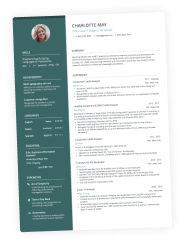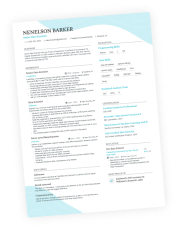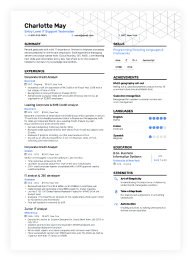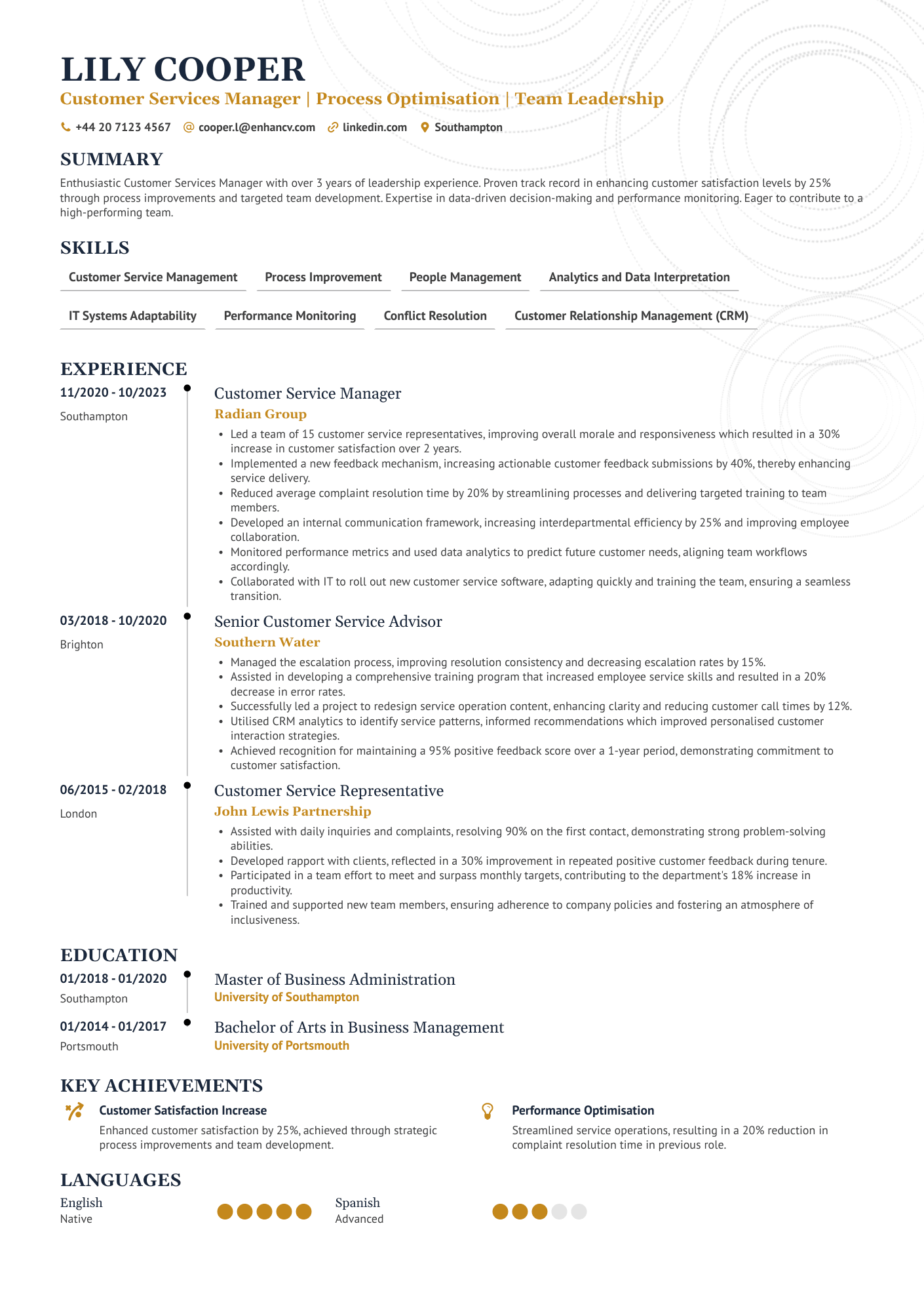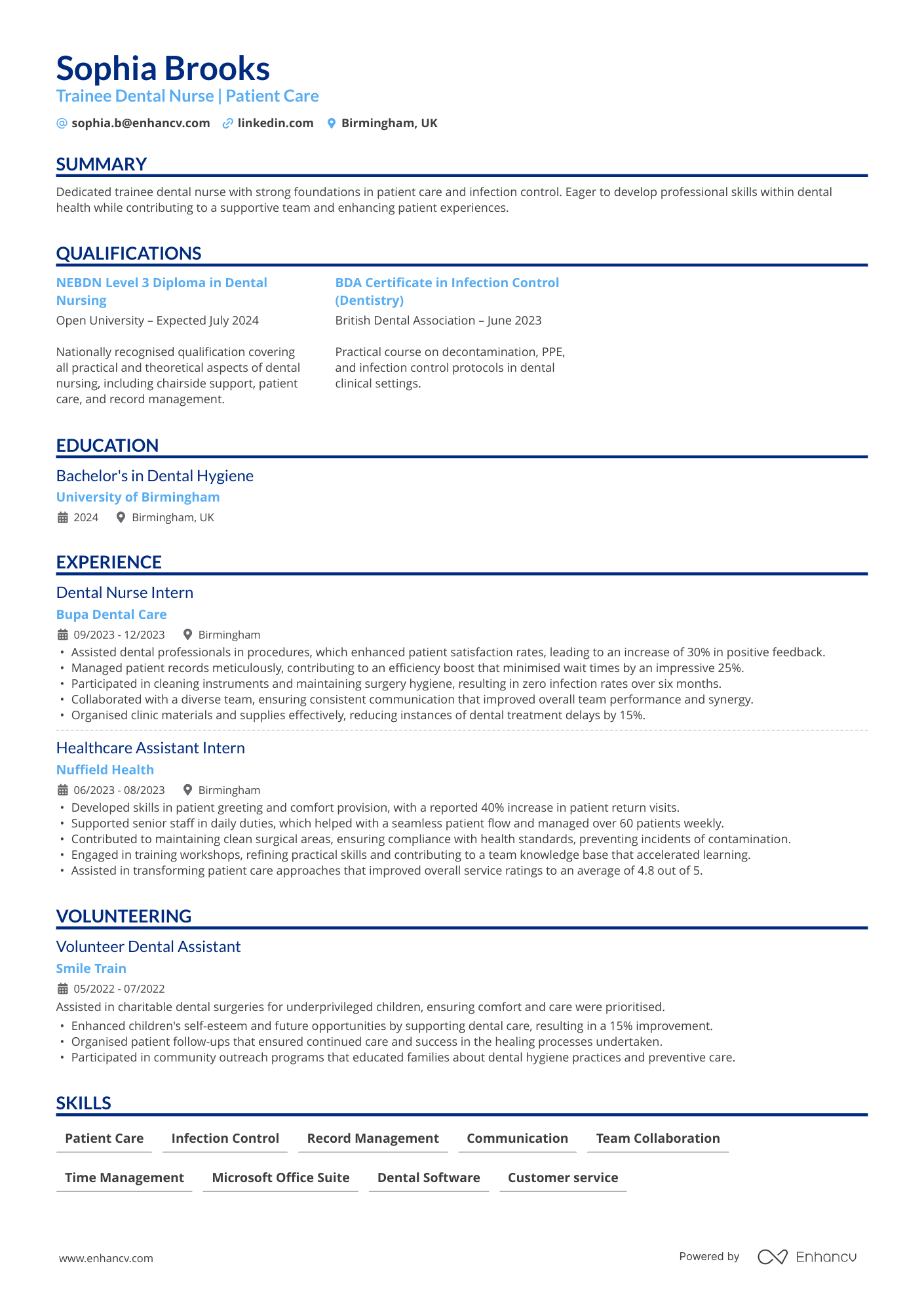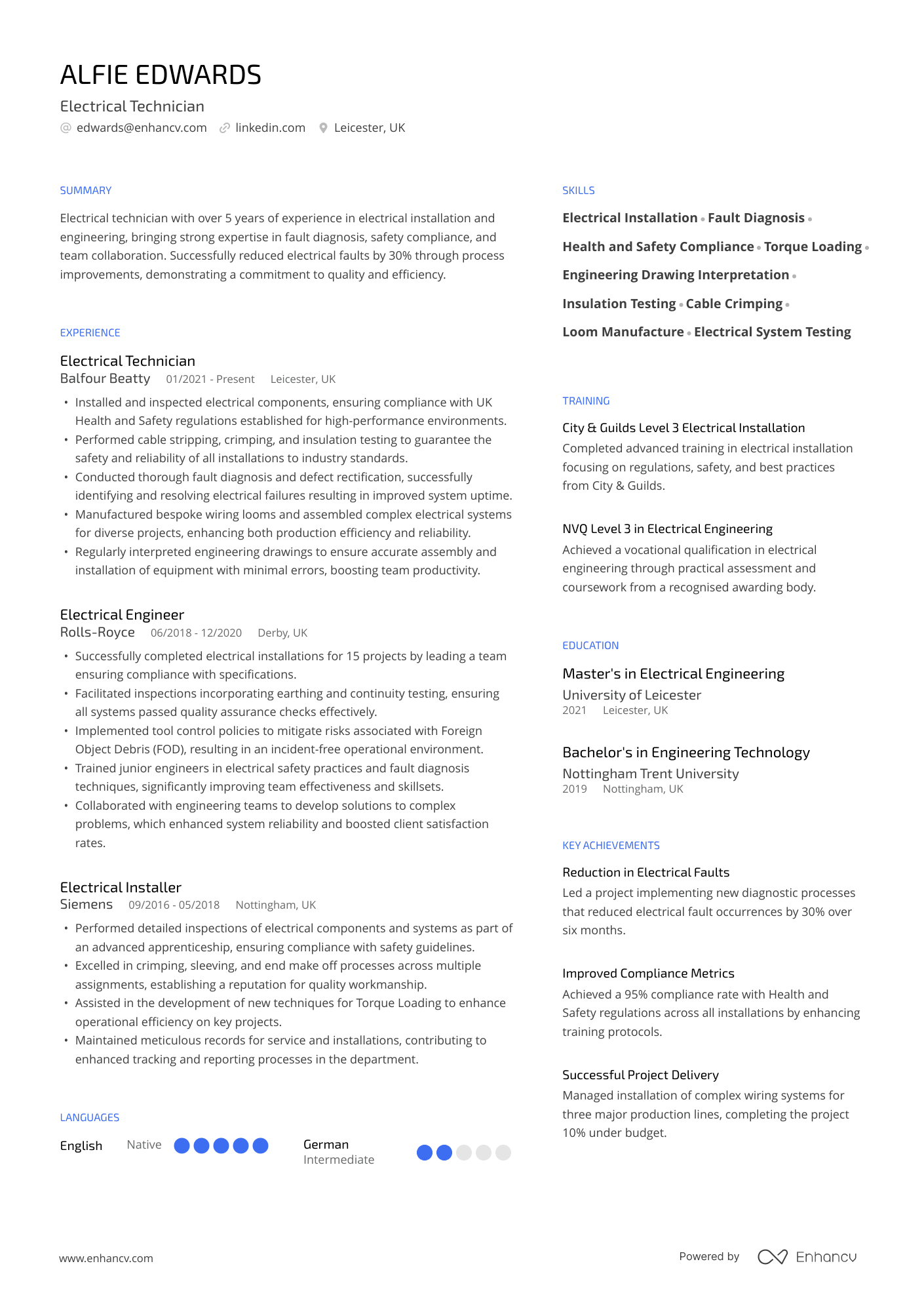The cursor blinks at you, but you have no idea where to start. Have you ever stared at your CV wondering which qualifications to include—or whether they even matter? If so, you’re not alone.
It sounds simple, but many jobseekers overcomplicate this part and second-guess what qualifications to include. After all, certificates are solid proof you’ve got the knowledge or training to handle the role.
In the UK, employers often rely on qualifications to filter candidates quickly. Whether it’s a required degree, a vocational certificate, or a professional accreditation, you’ll find that most job ads list specific credentials upfront. Miss them off your CV, and you risk losing the opportunity. Include the right ones, and you give your application a much stronger chance of success.
So, where do you begin, and what qualifications are likely to land you an interview? We’ve got the inside scoop.
In the following guide, we’ll look at why you need qualifications on your CV, which ones will get you noticed, and how to present them perfectly for the hiring manager.

Key takeaways
- Qualifications prove your skills on paper. They’re not just a box-tick, they’re often how hiring managers shortlist CVs fast.
- You don’t need to list every certificate. Simply pick the ones that matter for the job and leave the rest off.
- Ongoing or partial qualifications still count, but label them clearly with “Ongoing” or the expected finish date.
- Vocational and professional qualifications are just as valuable as degrees, especially for technical or hands-on roles.
- Tailor your CV every time. Move qualifications higher up if they’re essential for the role, and always match what’s asked in the job description.
Let’s start by clearing up what “qualifications” really means on a CV.
What are qualifications on a CV?
Qualifications refer to any formal recognition of your education, training, or professional development. These certificates strengthen your application—as long as they’re relevant to the job. However, it’s important to know which ones matter and which don’t.
CV qualifications include academic degrees (such as GCSEs, A-Levels, or degrees), vocational training (like NVQs or BTECs), and professional certifications (like CIPD or NEBOSH). You can list them in your education section, but may also mention them elsewhere on your CV.

Qualifications prove you have tangible skills
Skills are what you can do, experience is where you’ve done it… but qualifications are the official proof that you have the training to back it all up.
Employers often use qualifications as a quick way to check whether you meet the job criteria, especially in sectors where certain credentials are a legal requirement.
Crafting a CV that gets interviews isn’t just about listing every job you’ve had or every skill you’ve picked up. It’s about being selective and choosing the right certificates for the role.
While experience and skills matter, the qualifications you include can often be the deciding factor. The right certificates show employers that you’ve met recognised standards, whether that’s through academic study, hands-on training, or professional development.
If you’re looking for a way to beat the competition, spotlighting qualifications on your CV is the answer. This easily scannable information can make a huge impression on recruiters.
It is always about the balance between academic accomplishments and learning genuinely experienced in the workplace that allows a CV to speak for itself.
Why are qualifications important on a UK CV?
You’ve perfected your work experience section, polished off your skills, and nailed that opening summary. However, if your qualifications section is a rushed afterthought (or worse, missing entirely) you could be missing out on job opportunities.

Education still matters to employers
Don’t let job adverts fool you! Just because the description doesn’t mention education, that doesn’t mean that hiring managers aren’t looking for it.
A study by Indeed found that 61% of UK employers still consider university degrees when reviewing job candidates, yet only 14% of job postings actually specify educational requirements.
Qualifications aren’t just the icing on the cake. For many jobs, they’re essential. For example, some roles legally require you to have specific credentials. Think about teachers, nurses, accountants, and engineers. You can’t waltz into those positions without the right education.

PRO TIP
Applicant tracking systems (ATS) scan CVs for keywords that match the qualifications listed in the job description. If your CV includes these terms— such as required skills, certifications, or education— it’s more likely to pass the initial ATS screening. The better the match, the higher your CV will rank when recruiters search the database for suitable candidates.
Even if you’re applying for positions without strict rules, the hiring manager may rely on qualifications to identify the best candidates.
They want to know:
- Have you studied the right subject?
- Do you meet the minimum criteria?
- Are you committed enough to back up your skills with real training?
Tick all those boxes from the offset, and you’re ahead of the game.

Benefits of qualifications on a CV
- Required for some professions: They’re often non-negotiable for regulated professions, such as law, medicine, and education.
- Get ahead of the competition: Because ATS flag qualifications as key terms, this can move your CV to a recruiter’s attention sooner.
- Prove your knowledge. Qualifications also boost credibility, showing you’ve got verified knowledge, not just experience. Think of them like a blue tick on social media.
- Show your industry commitment: They reflect ongoing development if you’ve completed recent or industry-specific training.
Are you a life-long learner? Continuing your professional development long after you’ve finished university is a real strength. Don’t be afraid to shout about your accomplishments on your CV.
Qualifications absolutely are a deciding factor when I'm screening applicants, especially in the initial stages of the hiring process. They offer a basis for whether or not an individual possesses the minimum qualifications of a job.
For certain technical or regulated professions—like accounting, healthcare, or engineering—qualifications are sometimes non-negotiable.
Types of qualifications to include on your CV
Got a wall full of certificates in your office? Or maybe just a couple of standout professional credentials you’re unsure whether to list? We’ve got your back. Knowing what counts (and how to show it off) can give your CV that extra spark of credibility that hiring managers love.
Let’s run through the main types of qualifications worth putting on your CV, and how to show them off without making it read like your old school report.
Academic qualifications
Let’s start with the basics. If you’ve sat through GCSEs, tackled A-Levels, or powered through a degree, you’ve already got academic qualifications under your belt.
This type of qualification is the foundation of most UK CVs, particularly if you’re early in your career or applying for roles that ask for a specific subject.

Examples of academic qualifications in the UK
- GCSEs. Your standard school-leaver qualifications. Most employers expect passes in English and maths at the very least.
- A-Levels. The go-to academic route after GCSEs. These are great for uni entry or showing subject-specific knowledge.
- BTECs. Hands-on, career-focused qualifications. These are perfect if you’ve trained in something practical like IT, business, or health.
- Undergraduate degrees (BA, BSc, etc.). Your first full degree, which shows deeper subject knowledge. Often needed for graduate jobs.
- Postgraduate degrees (MA, MSc, PhD). Kicking things up a gear, these are next-level qualifications that prove expert knowledge in your field.
Whatever educational path you’ve taken, sharing it with the hiring manager is the way to go. This detail gives them an idea of how you carved out your career.
How to format academic qualifications
- Start with your highest qualification first—this is usually your degree or equivalent.
- Include the qualification name, awarding institution, and dates attended (or year completed).
- Mention grades only if they add value. For example, a first-class degree, distinctions, or strong A-level results.
- Be clear but brief. For school-leaver CVs, list GCSEs or equivalent clearly, like "9 GCSEs including English and maths (grades 9–6)".
- Keep the section concise and easy to scan—avoid listing every single module or subject unless highly relevant to the job.
Here’s an example of how your education section may look:
Academic qualifications on a CV
University of Manchester
BA (Hons) English Literature — 2:1
2019 – 2022
King Edward VI Sixth Form College
A-Levels: English Literature (A), History (B), Psychology (B)
2017 – 2019
Bradford Grammar School
GCSEs: 9 subjects including Maths (B), English Language (A), and Science (B)
2012 – 2017
While your schooling matters, it’s not the only type of certificate hiring managers care about.
Let’s take a look at another, more career-focussed route.
Vocational qualifications
Not all learning happens in a classroom. If you’ve trained on the job, taken a course in a hands-on trade, or picked up a practical qualification, you’ve got some vocational training.
These qualifications get you career-ready, and they’re often a must for technical or manual roles. We’re talking about engineering, construction, and IT… to name but a few.
Hiring managers don’t overlook these quickly. Vocational qualifications are a clear sign you’re serious about your field and have the technical know-how to back it up.

Examples of vocational qualifications
- NVQs / SVQs. These are practical, work-based qualifications tailored to specific job roles. They’re common in social care, construction, and childcare.
- BTECs (vocational route). These qualifications tend to be similar to the academic version, with one major difference. They are focused on applied learning. You might study fields like business, IT, and healthcare.
- Apprenticeships. Apprenticeships combine work and study offering both on-the-job experience and a recognised qualification. These come in levels: Level 2 lines up with GCSEs, while Level 7 puts you on par with someone who has a master’s degree.
- Diplomas or Certificates. Industry-specific training that proves you've studied a particular area in depth. Examples include childcare, vehicle maintenance, or beauty therapy.
Where and how to list vocational qualifications
- Include vocational qualifications in your education section, especially if they’re formal credentials like BTECs, NVQs, SVQs, City & Guilds, or apprenticeships.
- List them alongside academic qualifications, in order of level or relevance—e.g. after a degree, or before GCSEs if it’s a higher qualification.
- Use the awarding body, the full qualification title, and the year completed.
- If the qualification is a must-have for the job (e.g. a Care Certificate or HGV licence), you can also put it in a separate Certificates or Professional Training section to highlight it.
Vocational education
Leeds City College
NVQ Level 3 in Health and Social Care (Adult)
2020 – 2021
Trinity High School
GCSEs: 9 subjects including Maths (B), English Language (A), and Science (B)
2014 – 2020
Vocational qualifications show you’ve done more than just the theory. You’ve got some hands-on training that proves your skills. In many industries (like the ones listed above!) that’s exactly what hiring managers want to see.
Next, we’ll dive into professional qualifications, and why they matter if you’re further along in your career.
Professional qualifications
Got letters after your name? Don’t be shy about them. Professional qualifications show you’ve gone beyond the baseline, and taken things to a new level.
While these are often required in regulated roles—like law and teaching—having them for other positions is always going to be a bonus.
Professional training or certifications can be a real tiebreaker, particularly when candidates are otherwise reasonably well-matched.
When someone has gone out of their way to obtain relevant certifications, it speaks to a proactive attitude and a willingness to stay current in their profession.
For example, in HR and payroll, if a candidate holds a CIPD or Certified Payroll Professional qualification, it tells me straight away that they're committed to their career. That they're not just relying on experience but investing in continuous learning.
Remember: these aren’t just “nice to haves.” Professional qualifications prove you’re serious about your field, up to date with industry standards, and trusted by a recognised body.

Examples of common professional qualifications
- ACCA qualifications. This is a big one in finance and accounting. The globally-recognised qualification is essential if you want to progress in those fields.
- CIPD. This certificate is a go-to for HR and people professionals. Put simply, it shows you understand employment law, strategy, and people management.
- RICS. This one is a must for surveyors. It proves you have the hands-on training you need and that you’re approved by a regulated body.
- Legal and healthcare licences. If you work in a regulated sector, you need to have the right licenses. Think accreditations for nurses and GMC registration for doctors.
Much like the vocational certificates, you can either include them in your education section or a specific certificates section.
Here’s how to format them in a dedicated section:
- Write out the full official title.
- Add the name of the organisation (e.g.IOSH, CIPD, PRINCE2®, RICS).
- Include the month and year, or the expected completion date if you’re still working towards it.
- If expiry or renewal is required, you can add “valid until [year]”.
If it’s just one certification but central to your profession, you can highlight it in your CV summary.
Like so:
Professional qualifications in the summary section
People-focused HR professional with 5+ years of working experience in employee relations, training, and policy development. CIPD Level 5 qualified, with a solid grounding in people management and employment law. Known for building a strong team culture and handling complex HR issues with clarity and care.
Other relevant training and certifications
Have you gone above and beyond? If you’ve completed a few nifty certificates over the years, they may help you to bolster your CV, especially if they are relevant to the job.
Whether it’s a one-day workshop or a certified online course, this kind of learning can help set you apart. But a quick word of warning: not all training is worth listing. If it’s vague, outdated, or unrelated to the role, it may be better to leave it off.

Upskill in your spare time with free courses!
Whether you’re looking for a career change or simply want to improve your employability, upskilling is the way to go.
Here are some of the places you can find free courses:
- FutureLearn — free courses from UK universities
- Google Digital Garage — pick up key digital skills online
- OpenLearn — 1,000 free short courses from universities
- Skills Toolkit (via the government) — free digital and numeracy courses
- Code First Girls (women only) — free coding and data training
Taking the time to learn new things will never be wasted. Technology moves quickly, and so it’s never been more important to stay up to speed.

Examples of other certificates that can boost your CV
- Online courses. Platforms like LinkedIn Learning andCoursera (plus the ones we’ve mentioned above) offer a range of certificates. In your CV, include the ones that align with your career only.
- Short-term workshops. Everything from leadership training, mental health first aid, digital marketing bootcamps, or software training. These work well if they’re tied to your role or the job you’re applying for.
- System or tool certifications. You may have certificates in Google Analytics, HubSpot, or Microsoft Office Specialist. List these qualifications on your CV to show that you’re ahead of the game with software.
You can either include these qualifications in your education section, or add them to your skills section. For instance, if the certificate is a skills-based one, such as Google Analytics, it can sit comfortably in either one of these sections on your CV.
Technical training certificates
BA (Hons) Marketing Management — 2:1
University of Brighton
2017 – 2020
Google Analytics for Beginners
Google Skillshop — Completed April 2024
Certified in core tracking, reporting, and audience segmentation features.
Now you’re clear on what qualifications to include on your CV, let’s talk about how to do it.
How to list qualifications on a CV
Showing off your qualifications on a CV is a talent. You need to make sure they stand out when a hiring manager is merely skimming your application. Let’s break down how to do that.
Choose the right placement
There are three main locations you can choose: top, middle, or bottom of the page.
If you’re new to your career, you should position your qualifications at the top, as they will hold a load of weight at this point.
However, once you’re a few steps up the career ladder, you can position them lower—either in the middle or bottom of your CV.
Combine qualifications with experience
If you’ve earned qualifications on the job (like an NVQ during an apprenticeship), there’s no need to waste space separating them.
Instead, you can blend them into your experience section. This approach is also clearer for the hiring manager and helps tell your career story in the correct order.
- •Completed NVQ Level 3 in Electrical Engineering as part of the apprenticeship programme.
- •Installed and maintained low-voltage power systems across commercial and industrial sites.
- •Worked closely with senior engineers to troubleshoot electrical faults and carry out routine inspections.
- •Adhered to strict health and safety regulations in live working environments.
Be clear if you’re still studying
Learning something new? If you haven’t yet completed a course or certificate, you can still brag about it. Just make sure you’re clear that it’s still a work in progress.
You can do that by adding the word "Ongoing" next to the qualification, or even by including an expected completion date.
Place top qualifications front and centre
Let’s say you have an in-demand qualification. You don’t want to make the hiring manager search for it on your CV. Instead, put it right at the top, in your professional summary.
How to tailor your qualifications to each job
Positioning matters here. Don’t use a one-size-fits-all approach when it comes to the qualifications on your CV. Tailoring this aspect of your application to the role can increase your chances of success. It’s all about what you show, and how you show it to the hiring manager.
Check out our simple checklist to help you get it right:

Tailoring your qualifications
- Read the job description carefully and highlight any qualifications listed there.
- In your CV, only mention credentials that are relevant to the vacancy.
- Prioritise relevant, prestigious, and recent qualifications at the top of sections.
- Mention transferable qualifications when you're changing careers.
- Delete any certificates that don’t add value.
Common mistakes to avoid when listing qualifications
By this point, you should be feeling confident about including qualifications on your CV. However, there are some final pitfalls you need to avoid.
Let’s take a look at some of the common mistakes that candidates make—and how you can side-step them:
- Adding every certificate into the mix. Including too many irrelevant qualifications in your CV could work against you. It makes the page look “busy”. Go for a quality-over-quantity approach when choosing which to include.
- Listing outdated or expired qualifications. Make sure the qualifications you include are in-date. In some cases, licenses or qualifications could expire after a certain period.
- Using inconsistent formats. As we’ve covered here, there are plenty of places you can include qualifications on your CV. However, you need to use a consistent approach.
- Not localising your language. When applying for roles in the UK, use British English. Don’t say “High School Diploma” when you mean “GCSEs” or “A-Levels,” for example.
- Overlooking your short courses. Even quick online courses can make a big impact on hiring managers. If they’re relevant to the role, make some space for them on your CV.
Frequently asked questions about CV qualifications
Looking for more answers about listing qualifications on your CV? Let’s round things off with some frequently asked questions:
Should I list GCSEs on my CV?
If you’re early in your career or the job advert asks for them, yes. You don’t need to list every subject. Add a line like “9 GCSEs inc. English and maths (grades A–C)”.
Should I list a qualification I haven't finished yet?
Definitely. You just need to mark it as “Ongoing” or include the expected finish date. This move shows you're actively working on your development, which hiring managers like to see.
Do online courses count as qualifications on a CV?
So long as they’re credible and relevant, the answer is yes. Stick to courses from recognised platforms, and only list them if they actually support the role you’re applying for.
Most job candidates have no idea how much employers value short courses or systems training specific to their industry—like certification on a particular HRIS or accounting software. Not necessarily glamorous, but often extremely worthwhile and distinguishing.
Takeaway
Your qualifications are valuable, so don’t undersell them on your CV. Use the advice we’ve shared to tailor them to the role and make sure they impress the hiring manager. If you’re ready to take the next steps, you’re already in the right place. Use Enhancv’s simple, drag-and-drop CV Builder to effortlessly create your next application.

